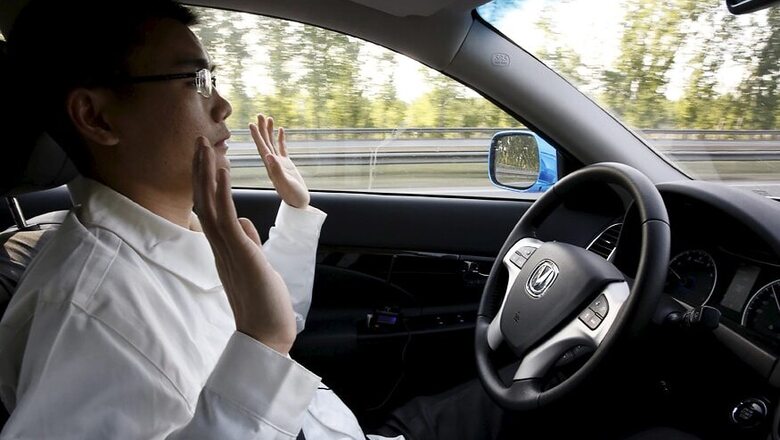
views
Self-driving cars can be a potential game-changer for older adults aged above 60 and can help in minimizing the risk of accidents, say, researchers.
"There are several levels of automation, ranging from zero where the driver has complete control, through to level five where the car is in charge... this will allow the driver to be completely disengaged, they can sit back and watch a film, eat, even talk on the phone," said Shuo Li from the Newcastle University in the UK.
"But, unlike level four or five, there are still some situations where the car would ask the driver to take back control and at that point, they need to be back in driving mode within a few seconds," Li said.
For the study published in the journal Transportation Research, the researchers examined 76 volunteers, divided into two age groups (20-35 and 60-81), and studied the time it takes for older drivers to take back control of an automated car in different scenarios and also the quality of their driving in these different situations.
They experienced automated driving for a short period and were then asked to take back control of a highly automated car and avoid a stationary vehicle.
It was found that in clear conditions, the quality of driving was good but the reaction time of older volunteers was significantly slower than the younger drivers. It took older drivers about 8.3 seconds to negotiate obstacles compared to around 7 seconds for the younger age group.
"At 60mph, that means older drivers would have needed an extra 35m warning distance - that's equivalent to the length of 10 cars," said Li.
It was also found that older drivers tended to exhibit worse takeover quality in terms of operating the steering wheel, the accelerator and the brake, increasing the risk of an accident, Li added.
The researchers concluded that fully automated cars which are unlikely to require a license and could negotiate bad weather and unfamiliar cities under all situations without input from the driver can be a potential game-changer for older adults and help in avoiding accidents.



















Comments
0 comment